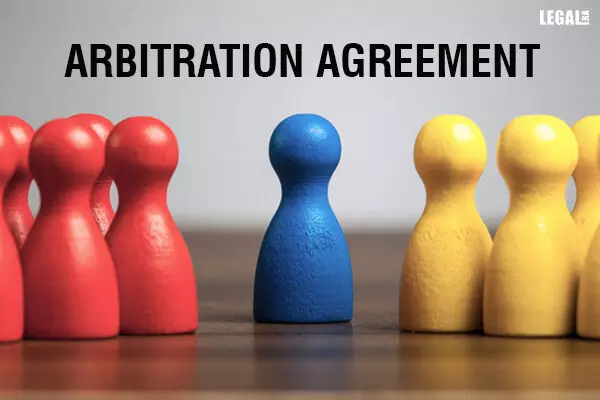- Home
- News
- Articles+
- Aerospace
- Artificial Intelligence
- Agriculture
- Alternate Dispute Resolution
- Arbitration & Mediation
- Banking and Finance
- Bankruptcy
- Book Review
- Bribery & Corruption
- Commercial Litigation
- Competition Law
- Conference Reports
- Consumer Products
- Contract
- Corporate Governance
- Corporate Law
- Covid-19
- Cryptocurrency
- Cybersecurity
- Data Protection
- Defence
- Digital Economy
- E-commerce
- Employment Law
- Energy and Natural Resources
- Entertainment and Sports Law
- Environmental Law
- Environmental, Social, and Governance
- Foreign Direct Investment
- Food and Beverage
- Gaming
- Health Care
- IBC Diaries
- In Focus
- Inclusion & Diversity
- Insurance Law
- Intellectual Property
- International Law
- IP & Tech Era
- Know the Law
- Labour Laws
- Law & Policy and Regulation
- Litigation
- Litigation Funding
- Manufacturing
- Mergers & Acquisitions
- NFTs
- Privacy
- Private Equity
- Project Finance
- Real Estate
- Risk and Compliance
- Student Corner
- Take On Board
- Tax
- Technology Media and Telecom
- Tributes
- Viewpoint
- Zoom In
- Law Firms
- In-House
- Rankings
- E-Magazine
- Legal Era TV
- Events
- Middle East
- Africa
- News
- Articles
- Aerospace
- Artificial Intelligence
- Agriculture
- Alternate Dispute Resolution
- Arbitration & Mediation
- Banking and Finance
- Bankruptcy
- Book Review
- Bribery & Corruption
- Commercial Litigation
- Competition Law
- Conference Reports
- Consumer Products
- Contract
- Corporate Governance
- Corporate Law
- Covid-19
- Cryptocurrency
- Cybersecurity
- Data Protection
- Defence
- Digital Economy
- E-commerce
- Employment Law
- Energy and Natural Resources
- Entertainment and Sports Law
- Environmental Law
- Environmental, Social, and Governance
- Foreign Direct Investment
- Food and Beverage
- Gaming
- Health Care
- IBC Diaries
- In Focus
- Inclusion & Diversity
- Insurance Law
- Intellectual Property
- International Law
- IP & Tech Era
- Know the Law
- Labour Laws
- Law & Policy and Regulation
- Litigation
- Litigation Funding
- Manufacturing
- Mergers & Acquisitions
- NFTs
- Privacy
- Private Equity
- Project Finance
- Real Estate
- Risk and Compliance
- Student Corner
- Take On Board
- Tax
- Technology Media and Telecom
- Tributes
- Viewpoint
- Zoom In
- Law Firms
- In-House
- Rankings
- E-Magazine
- Legal Era TV
- Events
- Middle East
- Africa
Arbitrator Decides Validity Of Arbitration Agreement: Telengana High Court

Arbitrator Decides Validity Of Arbitration Agreement: Telengana High Court
The Telangana High Court, under Justice K Lakshman, ruled that courts can direct disputes to arbitration unless a party demonstrates a clear basis for questioning the validity of the arbitration agreement. The Court ruled that when doubts exist about the agreement's validity, the arbitrator, not the court, should resolve the matter.
The case revolves around a lease agreement between Gourishetty Srinivas (the Applicant), who owned a specific property in the Malkajigiri District of Telangana, and M/s Karvy Data Management Services (the Respondent). This agreement outlined the terms for leasing the property over nine years. The Respondent, however, failed to meet its rent payment obligations, starting from January 1, 2020. In response to this default, the Applicant issued a notice demanding ₹29,52,108 in rent arrears and requested that the Respondent vacate the property. Allegedly, the Respondent did not comply with these demands, prompting the Applicant to terminate the lease agreement. The Applicant now asserts that the Respondent owes them ₹51,37,050 for the period spanning January 2020 to September 2021.
Further adding to the dispute, the Applicant served an arbitration notice upon the Respondent, citing Clause 20 of the lease agreement. This clause mandated resolving any disagreement through arbitration, adhering to the Indian Arbitration and Conciliation Act, 1996 (Arbitration Act). The notice even nominated Chalapathi Rao as the designated arbitrator for the Applicant's side. However, the Respondent remained unresponsive. Frustrated by this lack of engagement, the Applicant filed an application under Section 11 of the Arbitration Act with the Telangana High Court. This application sought the appointment of a single arbitrator to settle the ongoing disputes.
Upon examining the lease agreement's arbitration clause and verifying the ongoing rent dispute, the High Court acknowledged the clause's presence. It cited the Supreme Court's precedent in Vidya Drolia v. Durga Trading Corporation [(2021) 2 SCC 1], to establish principles for applying Section 11 of the Arbitration Act. The Court underlined its role in directing disputes to arbitration unless a party presented compelling evidence (prima facie case) against a valid arbitration agreement.
The Court recognised the explicit agreement between both parties to settle disputes through arbitration, as stipulated in Clause 20 of their contract. This clause made arbitration the designated path for resolving conflicts.
The High Court further established that even if doubts exist about the validity of the arbitration agreement, the matter should still be referred to arbitration for resolution. This approach emphasises the strength of arbitration agreements as the preferred method for dispute settlement unless proven invalid.
Consequently, the High Court granted the application and appointed Justice Ramesh Ranganathan, former Chief Justice of the Uttarakhand High Court, as the sole arbitrator to resolve the disputes between the parties.



